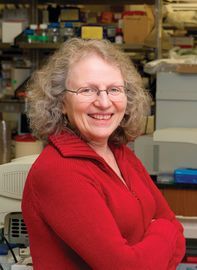LRA Grants $9M to Advance Lupus Research
The Lupus Research Alliance's 2022 Global Team Science Awards (GTSA) grant will provide $3 million for 3 years to each of the winners.
Rheumatology Network interviewed Hoang Nguyen, PhD, Senior Scientific Program Manager who oversees the Lupus Research Alliance (LRA) 2022 Global Team Science Awards (GTSA) program, to discuss this year’s winners, recognized for working tirelessly to advance lupus research.
The program originally stemmed from the strategic priorities set by the LRA. One of the priorities was to understand the heterogeneity of lupus, which makes treatment more difficult, as patients present with different manifestations. The goal of the award is to “accelerate breakthroughs in lupus by stimulating global collaboration and define heterogeneity to allow for patient stratification for clinical trials,” Nguyen explains. “This will also allow us to use the latest technology to study clinical samples data from patients with lupus.”
The grant, made possible by a generous grant from the Bloomberg Philanthropies, will provide $3 million for 3 years to each of the winners. Additionally, 100% of every dollar donated to the Lupus Research Alliance goes directly to funding these research programs.
The LRA’s 2022 GTSA Winners:
Betty Diamond, MD, Feinstein Institutes for Medical Research, United States:
Betty Diamond, MD

Diamond is examining for the causes of lupus heterogeneity in patients with systemic lupus erythematosus (SLE) in remission as well as the potential link between brain function and immune cell features in this population. As of now, the way that remission is defined does not include the evaluation of cognitive impairment. Her project focuses on characterizing the immune cells during remission as well as using newer imaging to examine the cognitive impairment, to determine if there is a link between immune phenotype and cognitive phenotype in this patient population.
Martin Kriegel, MD, PhD, University of Münster, Germany:
Martin Kriegel, MD, PhD

Kriegal, the first scientist to link the microbiome to autoimmunity, is seeking the initial triggers for the misdirected immune system response that leads to lupus by examining whether intestinal microbes aggravate autoimmune inflammation in lupus patients. Kriegel’s team hopes to develop lupus treatments that target this damaging gut bacteria.
“This science is completely new and could open up a new field of identifying novel targets for diagnostics, as well as treatment,” Nguyen explained. “Right now, people are not looking at the microbiome and the microbes. Those metabolites could be used as a biomarker for diagnostics as well as new targets for treatment.”
Eric Morand, MD, PhD, Monash University, Australia:
Eric Morand, MD, PhD

Morand is investigating ancestry-specific lupus molecular pathways and the genetics underlying ancestral differences that drive heterogeneity in SLE by studying 5 different ancestral groups (Europeans, Afro-Caribbean, South and East Asians, and Indigenous Australians). In addition to comparing these groups, he will also focus on response to treatment and the role genetics play in lupus severity. By identifying biomarkers, this research by allow for better patient stratification and, potentially, personalized medicine.
“Dr Morand is able to look at groups from Australia and the United Kingdom, 2 countries with universal healthcare,” Nguyen noted. “This is significant because all of the patients included in the study will have access to the same heath care, which eliminates potential confounding factors. In the United States, for example, it is really hard to define and delineate the ancestry and healthcare access across different groups.”
“This award has tremendous potential because of the team itself; we are bringing together investigators from different disciplines and different expertise which creates synergy for the group,” Nguyen concluded. “Also, now that we have more recipients, we are trying to bring the teams together to further increase collaboration and attract more talent into the lupus research space.”